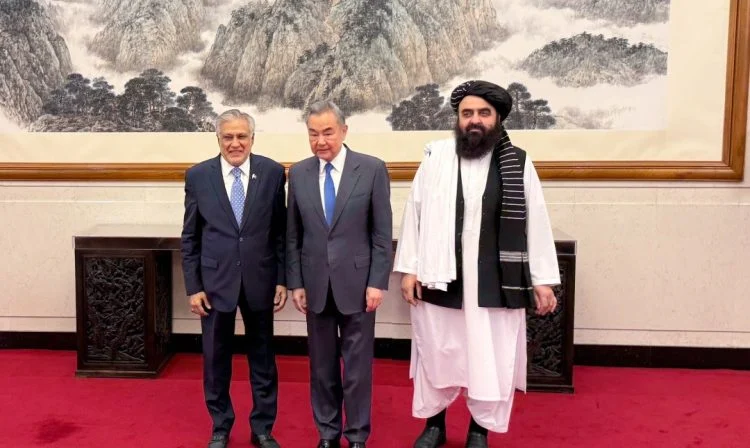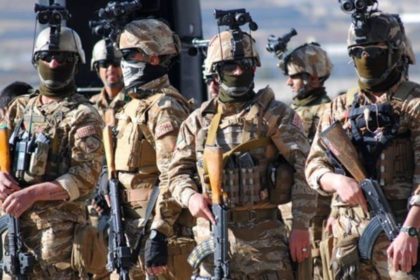RASC News Agency: Pakistani media outlets have reported that on Wednesday, August 19, a high-profile trilateral summit will be held in Kabul, bringing together the Taliban regime and the foreign ministers of China and Pakistan. Observers suggest the meeting could prove decisive in shaping the future dynamics of the region. According to Geo News, Taliban Foreign Minister Amir Khan Muttaqi will host China’s Foreign Minister Wang Yi and his Pakistani counterpart Ishaq Dar. Sources familiar with the agenda confirm that the one-day meeting will focus primarily on security and economic issues, with particular emphasis on the presence and activities of transnational terrorist groups operating inside Afghanistan.
The three sides are also expected to review the progress of commitments made during their earlier negotiations in Beijing this past May. As scheduled, Wang Yi will depart for Islamabad on Wednesday evening following the Kabul talks. Notably, the Taliban’s Ministry of Foreign Affairs has thus far declined to issue any official statement on the matter. This meeting comes at a time of escalating friction between Islamabad and Kabul. In recent months, Pakistan has repeatedly accused the Taliban of providing safe haven, logistical assistance, and even direct financial support to Tehrik-i-Taliban Pakistan (TTP). Just last week, a Pakistani media outlet revealed that the Taliban regime in Afghanistan allegedly pays the TTP’s leader at least $43,000 USD per month funds reportedly used to purchase weapons and ammunition for cross-border assaults against the Pakistani military.
Meanwhile, Pakistan is quietly preparing for a separate gathering on its soil that may prove equally consequential: a conference bringing together Taliban opponents, Afghanistani cultural figures, and human rights activists. Analysts interpret this initiative as an early sign of Islamabad reconsidering its policy of appeasement toward the Taliban and potentially pivoting toward open support for the regime’s opposition. For Pakistan, the Kabul meeting could represent a final diplomatic warning to the Taliban: abandon your support for the TTP or brace for confrontation with an organized Afghanistani opposition that may soon find sanctuary across the border.
China, however, approaches the summit from an entirely different angle. For Beijing, the calculus is defined not by ideology, but by economics. Over the past two years, China has positioned itself as a mediator between Kabul and Islamabad, largely because of its extensive economic ambitions in the region. With Afghanistan’s vast mineral wealth including lithium, copper, and rare earth deposits China has already signed multiple extraction contracts with the Taliban regime, undeterred by the group’s violent track record or draconian governance. At the same time, Pakistan’s fragile economy is deeply interwoven with China through the China-Pakistan Economic Corridor (CPEC), leaving Islamabad heavily dependent on Beijing’s goodwill. This triangular entanglement explains China’s insistence on maintaining close ties with both parties, even as tensions mount.
Globally, China’s foreign policy strategy has long been driven by a single doctrine: economic leverage as the basis of both war and peace. In this context, the nature of a government or its human rights record is largely irrelevant to Beijing. Whether it is the Taliban in Kabul or authoritarian rulers elsewhere, China’s sole concern lies in securing access to markets, infrastructure, and resources. Thus, the Taliban, despite their pariah status as a fundamentalist movement responsible for repression, terrorism, and systemic violations of human rights, have found in Beijing not a critic, but a willing partner. For China, Afghanistan is not a country in ruins it is a resource-rich frontier waiting to be exploited.






